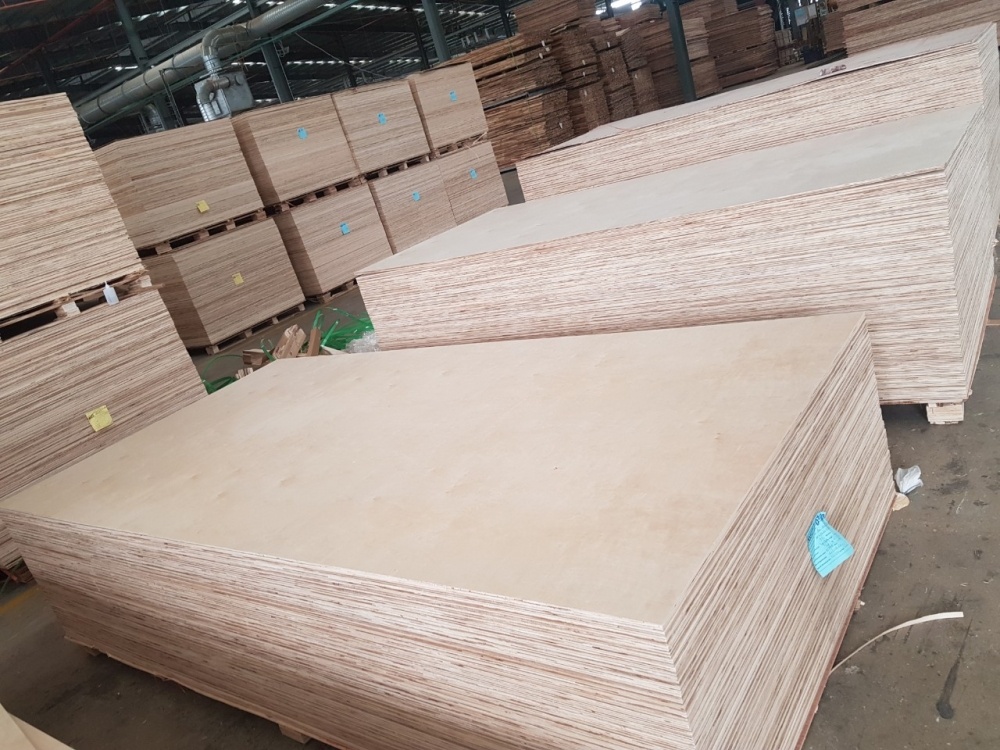Vietnam’s plywood makers fear US probe tied to alleged Chinese dumping

(VEN)– The American Coalition for Fair Trade of Hardwood Plywood recently asked the US Department of Commerce (DOC) to investigate anti-dumping duties on hardwood plywood imported from Vietnam.
Signs of unfair competition
The Trade Remedies Authority of Vietnam sent an official dispatch to the Vietnam Timber and Forest Product Association notifying it of the situation. Last year, the export value of hardwood plywood products was US$309 million, an increase of 950 percent compared to 2016.
According to the petitioner, after anti-dumping and countervailing duties were imposed on Chinese hardwood plywood products, Chinese manufacturers shipped part of these products to Vietnam for assembly before exporting them to the US. The petitioner accused hardwood plywood assembling factories in Vietnam and manufacturing factories in China of forming an association designed to evade anti-dumping and anti-subsidy duties applied to Chinese products. The petitioner asked the DOC to issue a final scope ruling or launch anti-circumvention proceedings on this product and complete its review within 45 days.
Cu Duc Hoang Tai, a representative of the Junma Phu Tho Company Limited affirmed that the petitioner was wrong to assume that Vietnam imported hardwood plywood products from China and then refined them for export to the US.
Tai explained that Junma’s hardwood plywood products have a local content rate of more than 90 percent, are made in accordance with Vietnamese standards, as well as American standards (California Air Resources Board or CARB PII) and have Vietnamese labels for export to the US. US importers, including Hardwood, Far East American, among others purchased 600-700 containers of wood products from Junma, Tai said.
Vietnam has about 160 hardwood plywood producers and exporters, half of which are foreign-invested enterprises. Whether Vietnamese enterprises, including foreign-invested companies in Vietnam, have evaded US anti-dumping and anti-subsidy measures or not remains a question that needs an answer. However, the fact that DOC was requested to launch an anti-dumping and countervailing investigation on certain hardwood plywood imports from Vietnam by the Coalition for Fair Trade of Hardwood Plywood has caused major challenges for Vietnam’s hardwood plywood industry. Vu Hai Bang, Chairman of the Board at Woodsland, said commercial fraud, if any, creates unhealthy competition and raises concern among US buyers that they might face problems if the DOC accepts the complaint and conducts an investigation.
Increasing knowledge of trade remedies
The Ministry of Industry and Trade issued Circular 22/2019/TT-BCT on halting the trade in hardwood plywood products through border gates and temporary import of these products to Vietnam for re-export to the US. Vifores Chairman Do Xuan Lap said a DOC investigation would affect Vietnam’s genuine and reputable hardwood plywood enterprises in foreign markets.
Lap recommended that hardwood enterprises review related documentation to prove they were honest. Localities need to investigate and stop illegal projects, and the Ministry of Industry and Trade needs to launch a program to help businesses enrich their knowledge of trade remedies and build standard reporting forms as required by the US, he said.
Vifores recommended that relevant authorities, especially the General Department of Vietnam Customs, tighten the import of goods through border ports and border crossings in order to prevent commercial fraud related to hardwood plywood products, and even prohibit temporary import and re-export of all hardwood plywood products in particular, and wood products in general.
Dr. TO Xuan Phuc from Forest Trends: Risk identification, control and elimination is crucial for the wood industry to maintain stability of and expand export markets, especially such traditional markets with high law-based and product sustainability requirements as the US



